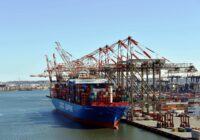The ongoing deceleration in demand for electric vehicles is an early warning signal of a shakeout in the nascent industry, according to Wharton management professor John Paul MacDuffie, who is also director of Wharton’s Program on Vehicle and Mobility Innovation. EV leader Tesla is laying off more than a tenth of its global workforce, and other manufacturers like Lucid and Rivian have reported losses. Government subsidies have helped cushion those impacts, and more support by way of higher tariffs on imported EVs is on the way.
“What’s going on with electrification transition and the demand for electric vehicles … is a reset that’s almost like the starting up of a new industry,” MacDuffie said on the Wharton Business Daily radio show that airs on SiriusXM. (Listen to the podcast.) He pointed to predictions of a shakeout and consolidation within China’s EV industry, and said, “I’m sure we’ll see it here [in the US], too.”
For sure, any new industry will see many casualties as it evolves. “One out of ten is considered a decent success ratio for entrepreneurial ventures of any kind,” especially in industries such as EVs that call for large capital requirements, MacDuffie said.
Vertical integration is key to success
According to MacDuffie, vertically integrated EV makers like Tesla and China’s BYD can ride out a shakeout because they control large parts of their supply chains. Tesla, for instance, makes EV batteries and has invested in battery storage. It also coped with the recent global semiconductor shortage by redesigning its software to support alternative chips, as a Forbes report pointed out. “You have more control, you can present a more coherent product and a more coherent brand and identity if you control the whole [manufacturing chain],” MacDuffie said.
Among the likely EV casualties that MacDuffie pointed to is Fisker, which appears to be on the verge of bankruptcy. But he expected Rivian, another startup that is also facing challenges, to survive, because it has an “appealing product that’s been well received,” which will help it continue to draw investment.
Legacy automakers have an advantage
Established automakers with EV products have another advantage over EV startups in that they can ride out the current demand slowdown by shifting to hybrid vehicles, MacDuffie noted. Several legacy automakers such as General Motors, Honda, Toyota and Ford have taken such a portfolio approach to increase their hybrid offerings.
Established automakers have another advantage over EV startups. “They already know how to do the design, the build, the supply chain, and the distribution,” MacDuffie continued. They also have the wherewithal to cross-subsidize their forays into new technology such as EVs, he added. “They can keep selling their existing product line and use those profits to cross-subsidize. That advantage is not available to a startup.” Such an advantage is especially useful when technology transitions get complicated or when demand growth slows down, he noted.
The demand slowdown hasn’t deterred new EV startups, especially those based on autonomous vehicle technology. MacDuffie pointed to Amazon subsidiary Zoox, an autonomous electric vehicle firm that is aiming for the robotaxi market. Another well-heeled EV startup is Aurora, an autonomous trucking company with backing from both Amazon and Toyota. “Where there’s a deep-pocketed investor that has a stake in you continuing, then you’re more likely to make it through this period of ferment than if you’re simply relying on the public markets,” MacDuffie said.
Building supply chains from scratch
Unlike with consumer electronics where an Apple could tap into an existing supply chain, the EV industry didn’t have “a bunch of contract manufacturing capacity sitting around just waiting for a great car design” that somebody comes up with, MacDuffie noted. The EV industry has faced hurdles in building out that supply chain from scratch. It has been hard for EV companies to obtain debt financing or venture capital financing because of the long wait before they can roll out their products and make profits, he explained.
As a consequence, companies like Tesla and Rivian have had to rely on the public capital markets to finance those investments, but that has made them particularly sensitive to the expectations of equity investors, MacDuffie noted. “Investors and everyone watching the stock market are hanging on every announcement about your sales. Anytime you don’t meet a sales projection, the stock tanks.” Not surprisingly, the drop in demand for EVs has hurt the stock prices of Tesla, Rivian and Nio.
Policy support vital for EV makers
Government support has been crucial for the EV industry in these trying times. “If there were not government subsidies and priorities to advance the electrification transition, then I don’t think you would see all of the world’s automakers making big strategic bets on electrification, and you wouldn’t see as many startups either,” MacDuffie said. “They have the confidence that this transition will happen with so much government push behind it.”
At the same time, EV makers in the U.S. face a degree of policy uncertainty unlike their counterparts in China which has a “unidirectional government,” MacDuffie noted. “In the U.S., if there’s a change in political party, and a change in who’s in the White House, then we may see policy swings much more,” he said. “It makes American EV companies subject to more volatility and more risk because, what if all the subsidies are taken away all of a sudden in a few years?”
On a recent trip to Germany, MacDuffie found that EV makers there are confident that their policymakers are committed to supporting the electrification of transportation; they are therefore surer of making their investments.
MacDuffie said the impending consolidation among EV makers is a familiar theme for the auto industry. He recalled that after the birth of the auto industry in the early 1900s, there were hundreds of auto companies, but they consolidated into five or six companies in the 1920s and 1930s, and eventually into the Big Three of General Motors, Ford and Chrysler (now part of Stellantis).
As the EV industry braces for a shakeout, financial staying power will make the difference. “Anybody who succeeds in persuading the various sources of capital to come together, as Elon Musk did very well from lots of sources [for Tesla], you have more chance to survive,” he continued. “But any time you lose one of those incoming streams of capital, boy, you’re much more on the edge.”
[Knowledge at Wharton first published this piece.]
[Lee Thompson-Kolar edited this piece.]
The views expressed in this article are the author’s own and do not necessarily reflect Fair Observer’s editorial policy.
Support Fair Observer
We rely on your support for our independence, diversity and quality.
For more than 10 years, Fair Observer has been free, fair and independent. No billionaire owns us, no advertisers control us. We are a reader-supported nonprofit. Unlike many other publications, we keep our content free for readers regardless of where they live or whether they can afford to pay. We have no paywalls and no ads.
In the post-truth era of fake news, echo chambers and filter bubbles, we publish a plurality of perspectives from around the world. Anyone can publish with us, but everyone goes through a rigorous editorial process. So, you get fact-checked, well-reasoned content instead of noise.
We publish 2,500+ voices from 90+ countries. We also conduct education and training programs
on subjects ranging from digital media and journalism to writing and critical thinking. This
doesn’t come cheap. Servers, editors, trainers and web developers cost
money.
Please consider supporting us on a regular basis as a recurring donor or a
sustaining member.
Will you support FO’s journalism?
We rely on your support for our independence, diversity and quality.







Comment